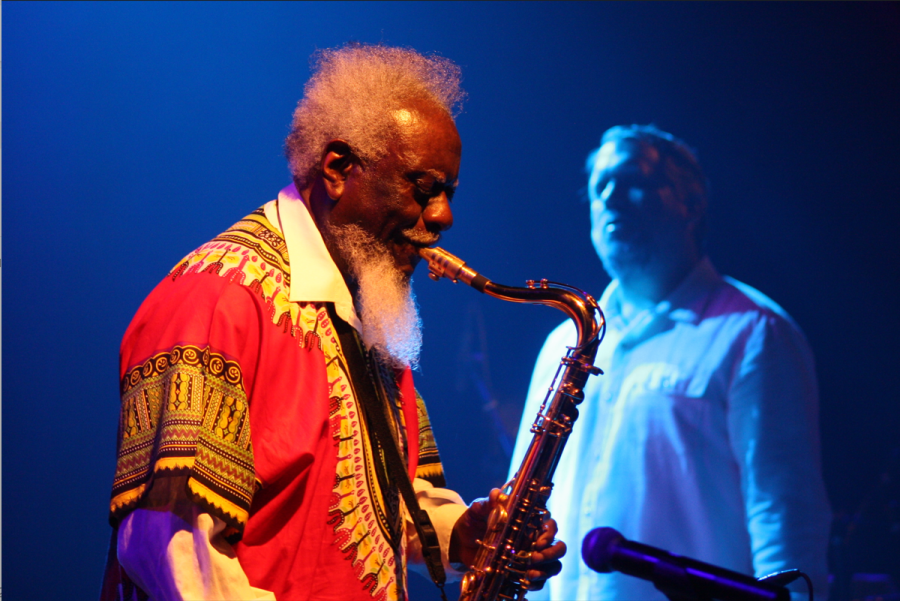Pharoah Sanders, an early pioneer of the free jazz movement, passed away Sept. 24, leaving behind a rich musical legacy of nearly 60 years of recordings and performances. His death comes nearly a year after the release of his album “Promises,” a collaboration between producer Floating Points and The London Symphony Orchestra.
Sanders established a reputation as a leading figure of the free jazz movement in the mid-1960s, a harmonic revolution in improvised composition that formed between 1959 and 1961 with a series of influential recordings from jazz saxophonist Ornette Coleman. But in 1961, Sanders was penniless, and freshly moved to New York City, ready to begin a musical journey that would help shape the sound of jazz for generations to come.
Sanders was born as Farrell Sanders in October of 1940 in Arkansas. His mother worked in a school cafeteria and his father worked for the City of Little Rock. Sanders began his musical education at an early age by learning piano, drums and clarinet. But it wasn’t until high school that Sanders began playing the saxophone, the instrument he is now known for.
His early days as a 21 year old in New York were difficult, with much of his time spent homeless and destitute. He worked odd jobs and made money donating blood, surviving off of cheap pizza and scraps. But Sanders’ luck would change thanks to two giants in the world of jazz: Sun Ra Arkestra and John Coltrane.
Sanders first encountered Arkestra at a club called Playhouse where he worked. When Arkestra’s tenor saxophonist left to tour Europe with Art Blakely, Sanders stepped in to fill his spot. It was Arkestra who encouraged him to use the moniker “Pharoah,” one that he would use for the rest of his career.
In 1965, Coltrane invited him to join his band, and Sanders’ musical explorations catapulted forward. Records like “Ascension” and “Meditations” preserve Sanders’ early exploits with Coltrane, and the duo’s talent and musical chemistry is palpable.
It was Coltrane who helped orchestrate Sanders’ first record deal with the Impulse! label, and in 1967, his first solo project, “Tauhid,” was recorded and released. Sanders continued to record and release a string of records, including the now staple of “Spiritual Jazz” canon, “Karma.”
In 1967, following Coltrane’s Death, Sanders worked with Alice Coltrane on “Blues for Coltrane,” a tribute to his mentor, for which he won a Grammy.
Sanders continued to release prolifically throughout his life, recording music and playing gigs up until his death. His final release, “Promises,” released in May of last year. Though only a year old, it quickly rose to critical acclaim, and is viewed by many as a masterpiece of contemporary jazz.
Sanders’ death comes at a time where many of the great jazz artists who shaped the modern musical canon have passed. Sanders’ own words on music seem especially powerful as the world mourns both his death, and the death of such an influential and beautiful era of music.
“Keep on going like that until it develops into—maybe something beautiful,” Sanders said in a 2020 New Yorker interview.
Sanders may have passed, but he will continue to inspire and develop those who will shape music, creating beauty that will persevere for generations to come.
You can listen to Pharoah Sanders’ legacy through this playlist, curating a history of his 60 year career of jazz experimentation and musical excellence, through 25 tracks.
This story was written by Sam Baughn. He can be reached at [email protected].



